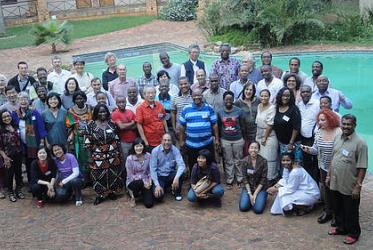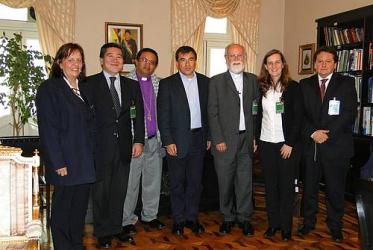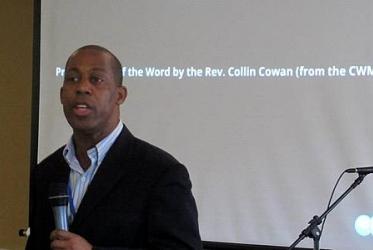Displaying 61 - 80 of 92
Hosanna! Ecumenical Songs for Justice and Peace
01 August 2016
Interfaith workshop calls for justice and compassion in finance
03 December 2015
Youth and church activists highlight peace pedagogy
28 August 2015
New days, new ways for mission and evangelism
23 April 2014
Churches engage in development dialogue on Africa
06 March 2013
Statement on global economy delivered to Bolivia
15 January 2013
WCC conference probes sustainability crises
27 September 2012
Tveit reports on churches’ work for justice and peace
29 August 2012










